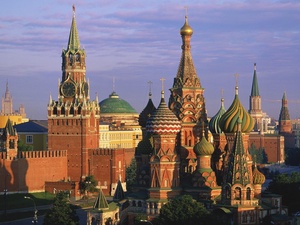
Arctic Frontiers: Disinformation, Security and the Northern Sea Route
Bellona held a seminar on countering Russian disinformation in the Arctic at the Arctic Frontiers international conference in Norway
News

Publish date: January 21, 2021
News
As 2020 closed, Russian President Vladimir Putin signed a package of controversial new laws expanding the government’s powers to label individuals and organizations as “foreign agents,” introducing an array of new restrictions on media organizations.
The new laws expand the controversial legislation from 2012, which allows authorities to label human rights groups and environmental organizations receiving even modest funding from abroad as “foreign agents.” The laws have led to the closure of many prominent non-governmental groups by subjecting them to court proceedings and onerous fines over the past several years. The legislation was updated last year to apply to individuals, including journalists and bloggers.
The new amendments to the law signed by Putin on December 30 broadened the parameters by which a person or legal entity can officially be deemed a “foreign agent,” a term that carries negative connotations associated with espionage for most Russians.
Under the law, Russian or foreign citizens receiving financial assistance from outside Russian and engaging in so-called political activity “in the interests of a foreign state” are required to register as foreign agents.
Entities receiving the label will be required to report their activities and face financial audits.
Putin signed a separate bill imposing penalties of up to five years in prison to those identified as “foreign agents” who do not register as such or fail to report on their activities.
Critics of the law say the term “political activity” is impossibly vague and has been broadly used to criminalize such things as election monitoring, stating opinions on government policies – including on social media – and participation in rallies. The definition further gives authorities a mandate to wield the law against almost any voice of dissent heading into September’s parliamentary elections – which many critics say is exactly the point.
Amnesty International has slammed the legislation, saying it would “drastically limit and damage the work not only of civil society organizations that receive funds from outside Russia but many other groups as well.”
“It exposes the Russian authorities’ belief that civil society actors are destructive ‘agents of the West’ bent on destabilizing the government,” Natalia Prilutskaya , the group’s Russia Researcher said. “The Russian authorities have already starved civil society financially and forced many organizations to close. Now, they are further demonizing individual activists.”
Lawmaker Vasily Piskarev, a co-sponsor of the bill, defended the initiative, insisting that it was needed to protect “the sovereignty of the Russian Federation and the prevention of interference in the internal affairs of our state.”
During the last week of December, the Justice Ministry added a prominent organization supporting Russian victims of domestic violence, Nasiliu.Net, to its list of “foreign agents,” prompting outrage among rights activists. The ministry also added five people, including veteran rights activist Lev Ponomaryov, 79, a longtime critic of Putin, to its list of media foreign agents, along with four others, including a journalist for Radio Free Europe/Radio Liberty.
Putin also signed a bill allowing media regulator Roskomnadzor to partially or fully restrict or slow access to foreign websites that “discriminate against Russian media.” The legislation is expected to affect major social media platforms such as YouTube, Facebook, and Twitter.

Bellona held a seminar on countering Russian disinformation in the Arctic at the Arctic Frontiers international conference in Norway

Our December Nuclear Digest, reported by Bellona’s Environmental Transparency Center, is out now. Here’s a quick taste of three nuclear issues arisin...

Bellona has launched the Oslofjord Kelp Park, a pilot kelp cultivation facility outside Slemmestad, about 30 kilometers southwest of Oslo, aimed at r...

Our November Nuclear Digest by Bellona’s Environmental Transparency Center is out now. Here’s a quick taste of just three nuclear issues arising in U...